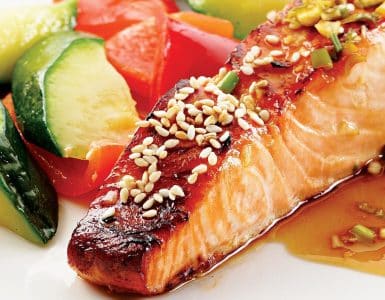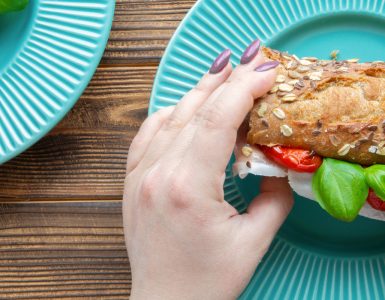Have you ever thought about how the foods you eat may affect the way you feel? Certain food can make you feel good—or bad—for different reasons. Whether it’s the food itself, its taste, your nutrition goals or what you associate with the food, choosing feel-good foods can help you stay on track with your health and well-being.
Focus on nutrient-dense foods. Nutrient-dense foods are rich in vitamins, minerals and nutrients that are required for good health. These foods are typically lower in saturated fat, added sugars and sodium. These foods are key to good health and sustainable energy levels. Examples include fruits and vegetables, whole grain foods, nuts, seeds, healthy oils and lean proteins.
Boost your brain power. Foods that benefit your brain include those high in healthy fats like avocados, olives and olive oil, nuts and seeds, fish and lean meats, and nutritious carbs like whole grains, fruits and vegetables
Eat regularly. Did you know that much of your hunger is controlled by hormones? Skipping meals or having an irregular eating schedule can result in an imbalance of hormones that can make you irritable or “hangry.”
Focus on healthy fats—they are a great source of energy and help your body absorb vitamins and minerals from foods! Look for foods high in monounsaturated fats, polyunsaturated fats and omega-3 to boost your energy and build reserves. Include nuts, healthy oils such as olive and canola, avocado, and cold-water fish, such as salmon and trout.
Consider your nutrition goals. If you’re working toward a specific goal such as improving your nutrition, selecting foods that benefit this goal will give you a boost in confidence and motivation, whereas if you regularly choose foods that are not in line with your goal, you may feel frustrated and discouraged.
Make your favorite comfort foods healthier. Whether it is an old family recipe, a food you associate with a happy memory or just a traditional “comfort” food, consider what you can do to make the recipe help you feel good and be healthy. For example, swap whole grain flour for white flour, oil for butter, fruit for sugar and more!
Avoid loading up on sugar, caffeine and “junk” foods. While they may provide a temporary pick-me-up, they result in a “crash” that can leave you feeling even more depleted. Enjoy these foods in moderation and as a way to treat yourself. Little indulgences of this type can be nourishing!



